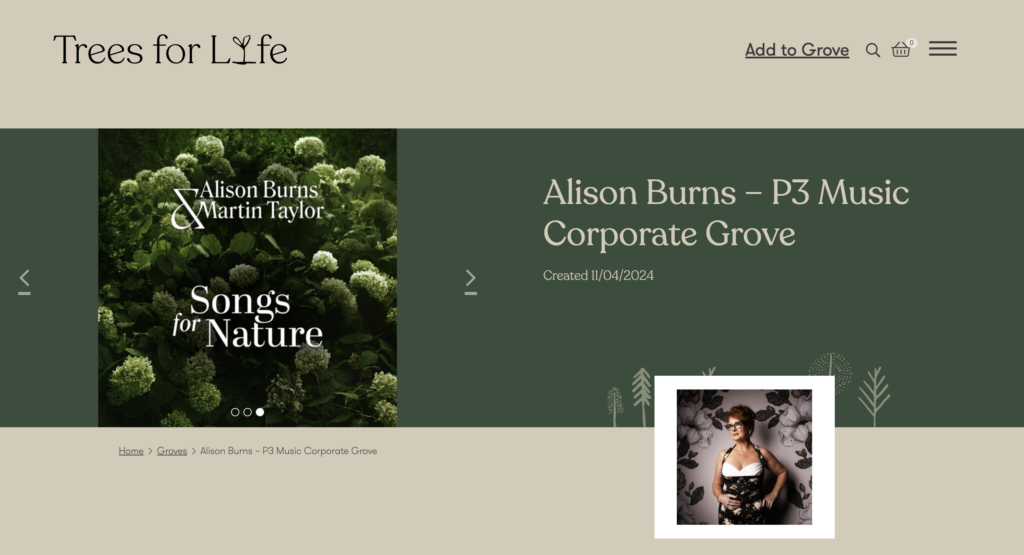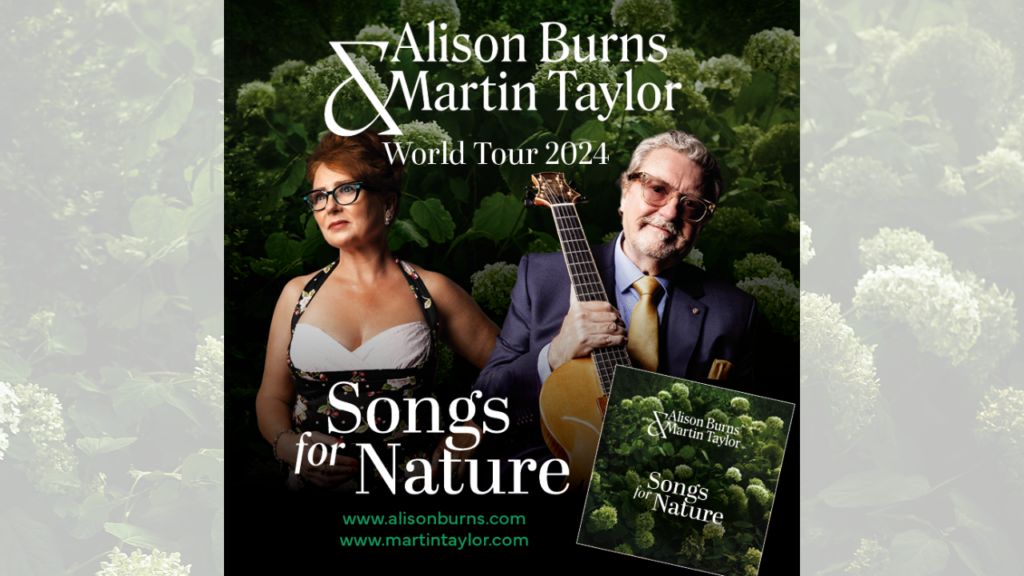For her forthcoming album ‘Songs for Nature’, Alison Burns wanted to ensure the recording and manufacturing as well as any touring was done in a sustainable way.
RECORDING STAGE
Throughout the creation of this album, we aimed to offset the carbon emissions associated with every aspect of the process, including travel to and from recording, mixing, and mastering studios, as well as the food consumed. The first stage was to calculate the carbon generated from this project which is not an exact science. Once that was done we were able to collaborate with UK charity Trees for Life to plant a grove in protected sites in the Scottish Highlands where they will create homes for wildlife and forests for the future. You can learn more about the Alison Burns grove in Scotland here. The intention is to plant more trees as the project rolls out as well as to invite audiences and fans to contribute to planting their own trees in the grove.

MANUFACTURING STAGE
The ‘Songs for Nature’ album will be released online as well as on CD. To reduce plastic use the compact disc packaging will be made from softpaks, with zero plastic jewel boxes.
The ‘Songs for Nature’ CDs are manufactured at Sony DADC in the Czech Republic, where protecting biodiversity is a central part of their philosophy. For this reason, they offer a home and shelter to twenty bee colonies – which is around 80,000 bees. The bees not only have a home there but are actually cared for by the employees. In a detailed, well-founded beekeeping course, interested employees have learned everything that is important for expert care and can thus actively participate in Sony DADC’s biodiversity measures.
A sustainable use of natural resources is part of Sony DADC’s environmental plans and since 1990 they have conserved resources by the following amounts: 48% less energy, 88% less water, 42% less waste, 96% less solvents. A prime example from the area of recycling is the processing of their polycarbonate waste for the manufacturing of new products. They reuse an annual recycling quantity of approx. 300 tons, thus saving 2,328 tons of CO2.
When it comes to renewable energies, Sony DADC purchases electricity exclusively from renewable sources since 2007 and now actually produce it themselves. With their photovoltaic system, they have been producing up to 1 million kWh of emission-free electricity per year since 2019 with a peak output of 1,020 kW. There are 3,190 solar cells on 11,000 square meters on the roof of the factory and the electricity generated contributes in parts to their electricity needs, which are covered 100% with renewable energy. In addition to energy for production, it also supplies the 20 charging stations for electric cars.
TOURING STAGE
As part of her work as a singer and keynote speaker on sustainability Alison Burns already has a ‘sustainability rider’ that she provides to venues and promoters. The Sustainability Rider is about creating new norms and working together to reduce our environmental impact, from the waste created to the way we travel. Like all other industries, the events and live music industry has much to do and Alison and her team are there to support them on their journey towards greater sustainability.

